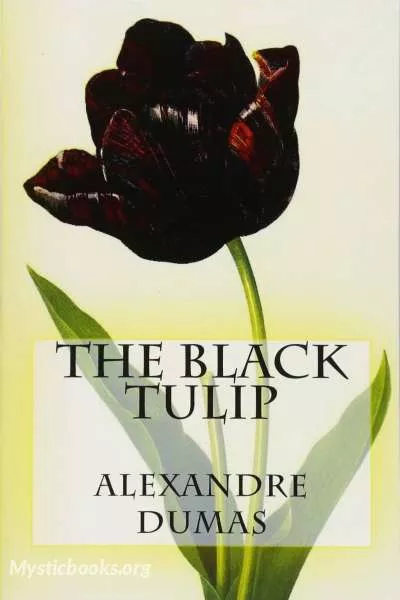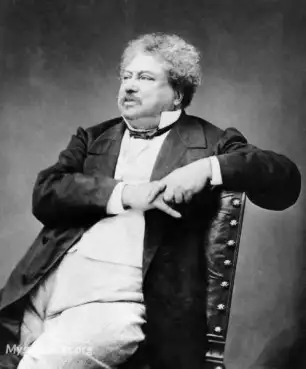
The Black Tulip
'The Black Tulip' Summary
The following lists the 38 stratagems described by Schopenhauer, in the order of their appearance in the book:
It begins with a historical event; the 1672 lynching by Orangists of the Dutch Grand Pensionary, Johan de Witt and his brother Cornelis, because they were considered rebels against the stadtholder William of Orange.
During these events there was Tulip mania across the Netherlands. In this scenarios, the main fictional character Cornelius Van Baerle, belonged to the natural school, whose motto was: "To despise flowers is to offend God", and thus followed the syllogism:
"To despise flowers is to offend God,
The more beautiful the flower is, the more does one offend God in despising it,
The tulip is the most beautiful of all flowers,
Therefore, he who despises the tulip offends God beyond measure". (p. 46, The Black Tulip)
The city of Haarlem had set the prize of 100,000 Francs to whom could grow a black tulip. At stake was not only the money, but also fame and honour. Also, the gardener would perpetuate his name in history by the tulip's recorded name.
The prosperous Cornelius Van Baerle, godson of Cornelius de Witt, starts the liking of growing tulips in his state. Then he takes the challenge of growing the black tulip. But as an act of misfortune, his neighbour, Isaac Boxtel – also a gardener – watches his every moves, and fearing his success, starts plotting. Followed by unsuccessful schemings, Boxtel moved by envy, denounces Van Baerle to Justice, because of Van Baerle's relation to the brothers De Witt, traitors of the nation then.
Van Baerle is suddenly arrested, and condemned to a life sentence in prison. Dumas uses religious beliefs for dramatic effect, and words as "Fate", "Providence" and "Misfortune". Misfortune plays a major influence throughout Van Baerle's life events, but at the end succumbs to be a major act of Providence. Shows that God is always in control, both in sadness as in happiness.
Was in such an act, that Van Baerle meets the beautiful daughter of the jailer, Rosa Gryphus. Cornelius loses everything but had kept the bulbs of the tulips, that were expected to be black. In midst of loss and sorrows, Rosa helps him to grow the flower in the jail. The two develop a great love story, even though it was not the main subject, but love gives Cornelius courage to not give up his fancies and expectations. Rosa is seen by him as a brave and virtuous girl, not held by her father vices, but strong in her own pursuits.
The drama elucidates how far an envious person can go; how the righteous ones are not forgotten by God; how in the midst of misfortune a greater happiness is right ahead, and so love and flowers can grow within stone walls.
As famously phrased in To Althea: From Prison by Richard Lovelace, "Stone walls do not a prison make, nor iron bars a cage". Van Baerle was free, even inside a prison he was faithful to his conscience. The guards could keep his hands, but not love from him moving forward. And the latter played a major role to prove his innocence.
The philosophy of the book is summed up "Sometimes one has suffered so much that he has the right never to be able to say, ‘I am too happy.’" (p. 204 The Black Tulip).
The novel was originally published in three volumes in 1850 as La Tulipe Noire by Baudry (Paris). A similarity of story may be seen in The Count of Monte Cristo by same author.
This book was officially printed in France by Alexandre Dumas in 1850 and originally had 236 pages but soon it was converted into different sizes thus changing the pages.
Book Details
Authors

Alexandre Dumas
France
Dumas began his career by writing plays, which were successfully produced from the first. He also wrote numerous magazine articles and travel books; his published works totalled 100,000 pages. In the...
Books by Alexandre DumasDownload eBooks
Listen/Download Audiobook
- Select Speed
Related books

Laodicean by Thomas Hardy
“The Laodicean” by Thomas Hardy follows Paula Power, a woman of modern sensibilities, who inherits the ancient De Stancy castle and embarks on a resto...

At the Point of the Bayonet: A Tale of the Mahratta War by G. A. Henty
This novel follows the British campaign against the powerful Mahratta Confederacy in India during the 18th century. The story focuses on the military...

Yorkshire Battles by Edward Lamplough
The book "Yorkshire Battles" by Edward Lamplough is a detailed account of the many battles fought in Yorkshire, England, throughout history. The book...

Simple Story by Elizabeth Inchbald
Simple Story by Elizabeth Inchbald follows Miss Milner, a young woman admired for her beauty and charm, who defies social expectations by declaring he...

Ahnen - Die Geschwister by Gustav Freytag
Die fünfte Erzählung der Ahnen-Reihe von Gustav Freytag, "Die Geschwister", folgt den Schicksalen zweier Brüder aus der Familie König. Bernhard Georg...

Jesuits in North America in the 17th Century by Francis Parkman, Jr.
Francis Parkman's classic work of American history recounts the story of the Jesuit missionaries in North America during the 17th century. Drawing on...

media noche: visión estelar de un momento de guerra by Ramón del Valle-Inclán
'Media Noche: Visión Estelar de un Momento de Guerra' is a collection of 40 brief chapters by Ramón del Valle-Inclán, each presenting a vignette of W...

Popular History of Ireland, Book 09 by Thomas D'Arcy McGee
This book is the ninth volume in Thomas D'Arcy McGee's comprehensive history of Ireland, consisting of twelve books in total. It covers the early Stua...

Ligeia und Andere Novellen by Edgar Allan Poe
Diese Sammlung von sieben Novellen des amerikanischen Schriftstellers Edgar Allan Poe erkundet Themen des Todes, der Trauer und der Besessenheit. Die...

Border Legion by Zane Grey
Set against the backdrop of the rugged American frontier, "Border Legion" tells the story of Jack Kells, a hardened soldier who finds himself drawn in...
Reviews for The Black Tulip
No reviews posted or approved, yet...